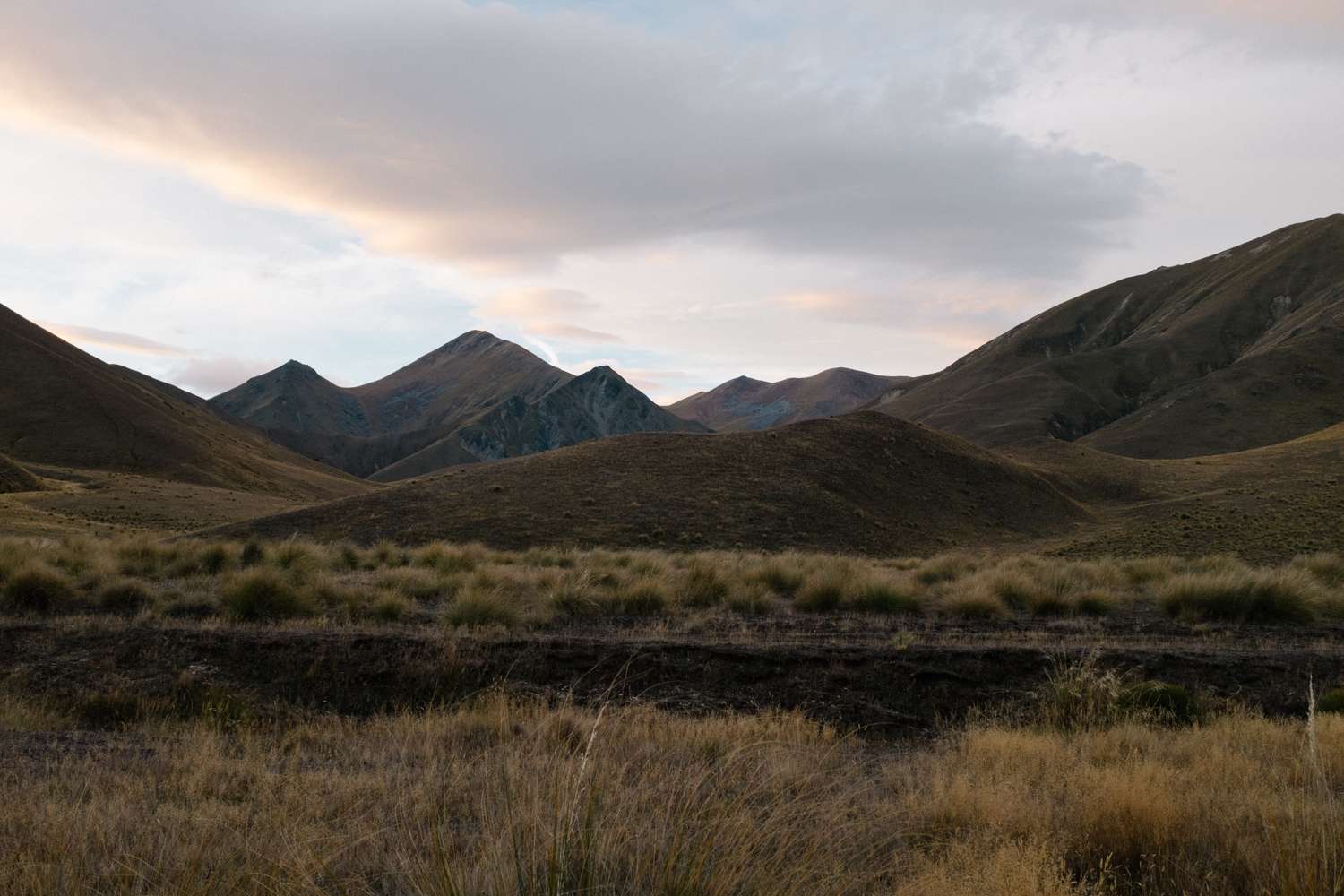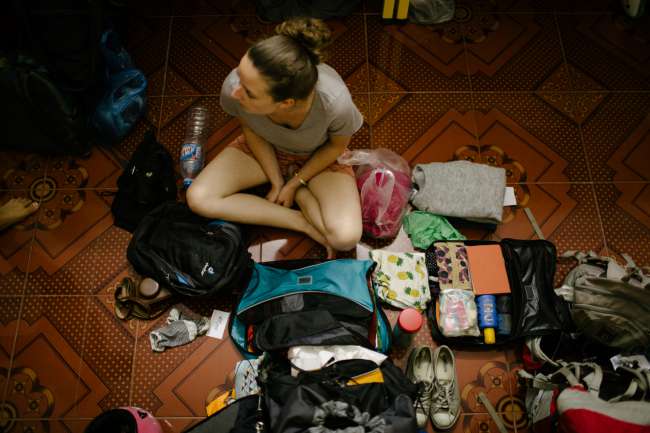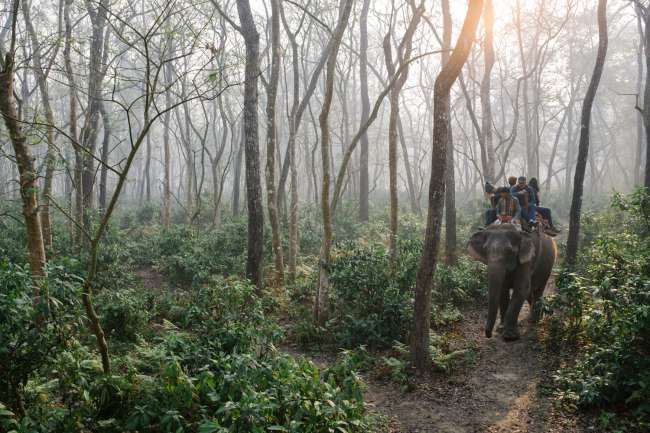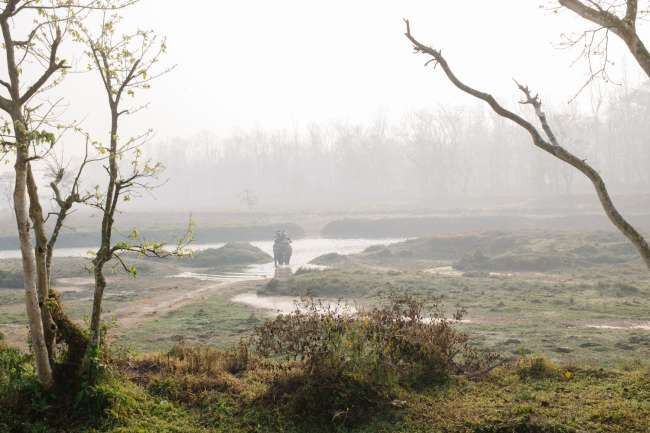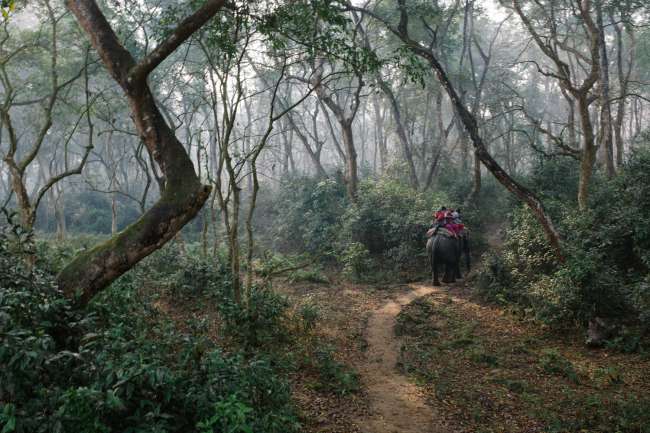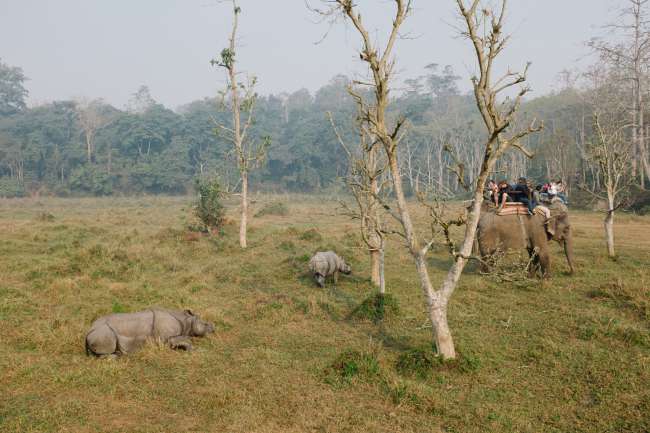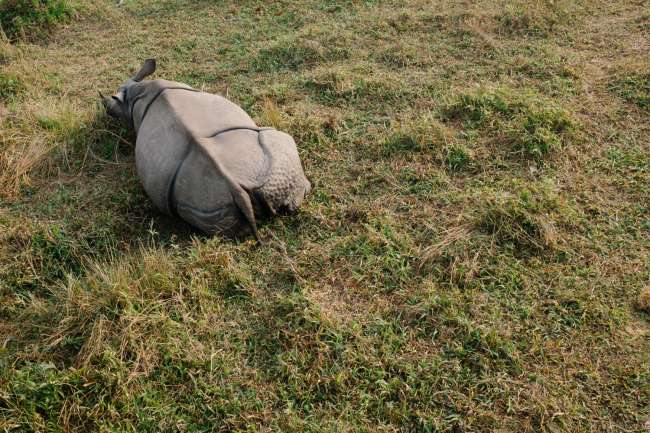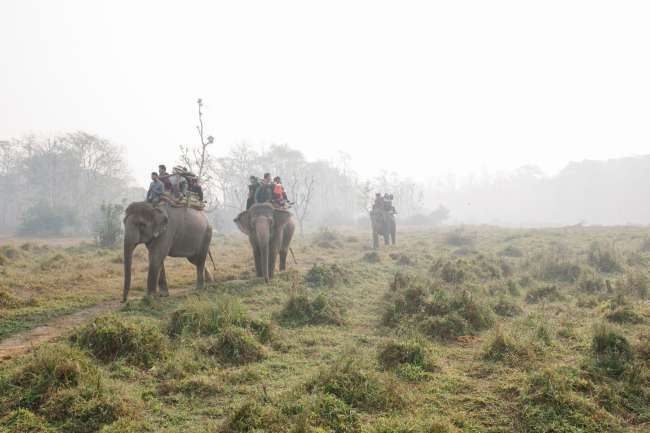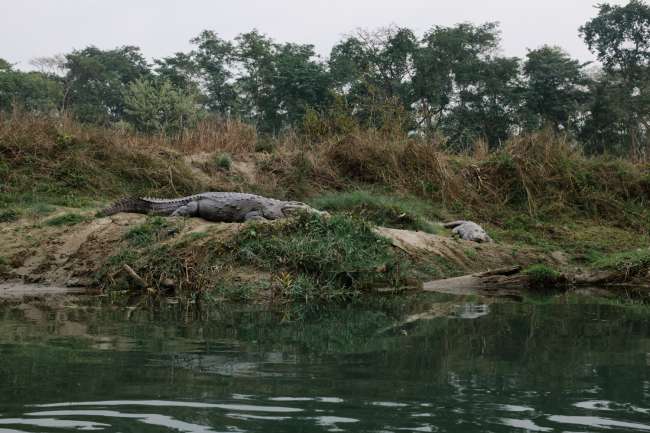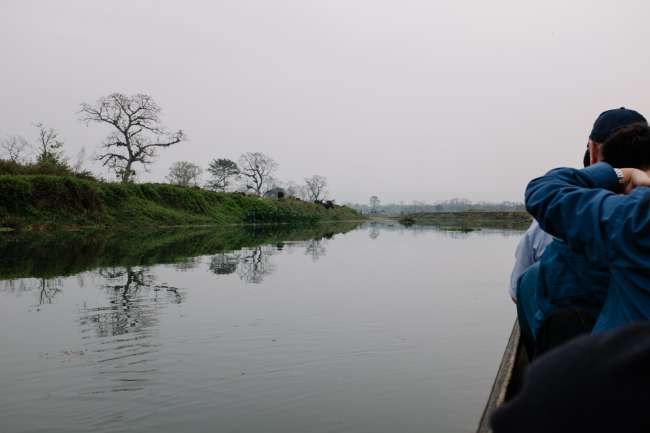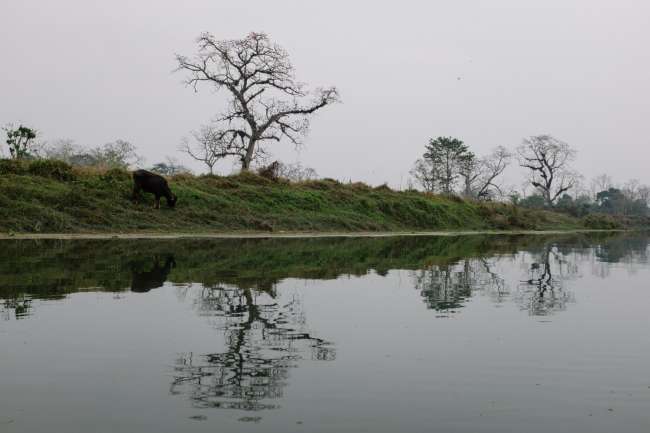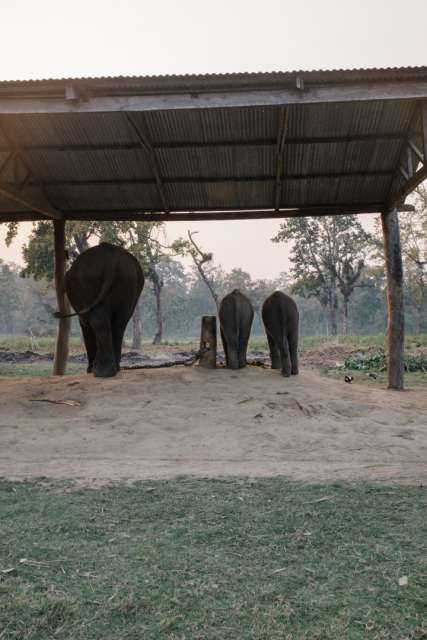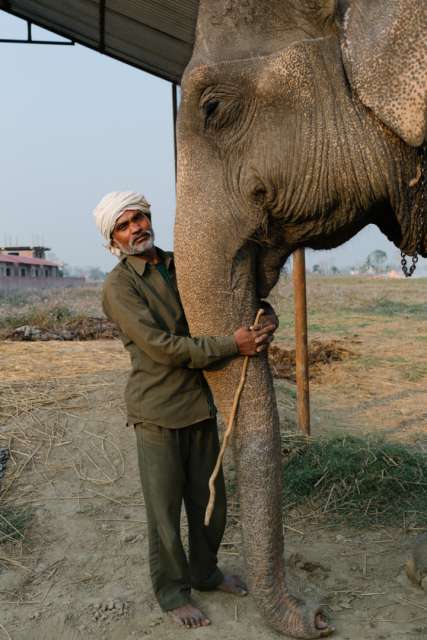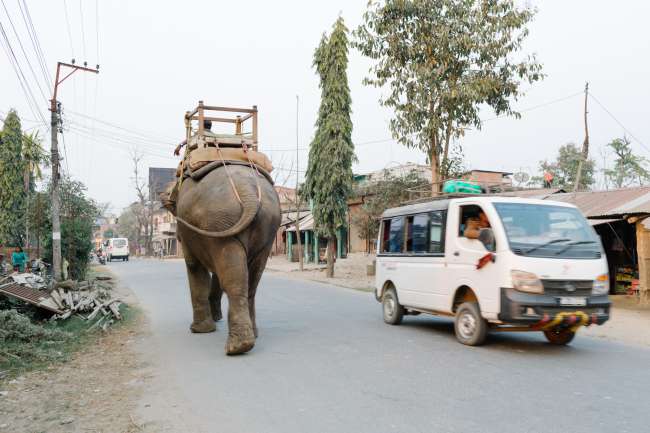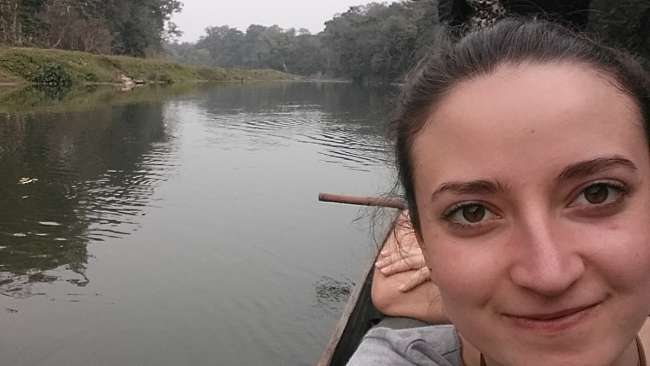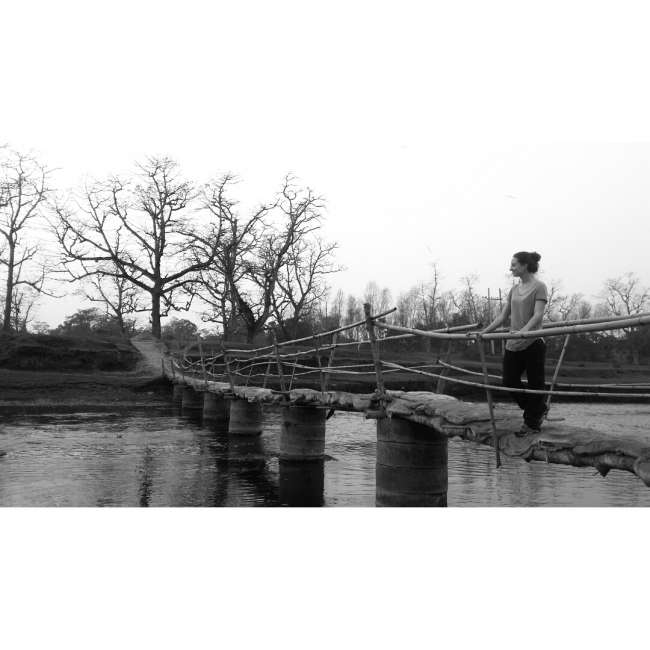My Jungle Book
Објављено: 15.02.2017
Пријавите се на билтен
Yesterday morning, I made my way to Chitwan National Park in the south of Nepal. Actually, it wasn't a must-do on my to-do list, but Santosh said it's worth seeing and now I'm really glad I came here. The name 'Chitwan' means 'Heart of the Jungle' and the national park is one of the best places in Asia to observe wildlife.
However, the journey here was an absolute horror! 7 1/2 hours bus ride for 150 km. The 'roads' were catastrophic and sometimes very dangerous. It was a miracle that the bus didn't just collapse and I was terrified the whole time, looking into the abyss and hoping that the driver also has the goal of staying alive. His driving style didn't suggest that though... A man sat next to me in Kathmandu - although there was still plenty of space on the bus. He didn't say anything until we reached the worst section of the road. Then he made the following comment: 'It's a very dangerous and long road.' Aaaaha, I really didn't need that at that moment. After that, he fell silent again...
It was all the more beautiful to finally arrive at the hotel. I booked the accommodation (Landmark Forest Park Chitwan) through Santosh. It's not exactly a cheap hotel, but I got a decent discount through Santosh. So I thought a bit of luxury wouldn't hurt either. At the reception, I immediately got my program for this and the following day.
I skipped the 'Village Walk' and ventured out on my own, as I preferred to explore everything calmly with my camera. The surroundings here are really exciting, but people here also live in very poor conditions and children ask for money or sweets. Most people make a living from agriculture or tourism. Life here is much calmer and slower than in the city - but no less dusty.
During my walk, I also had my first encounters with elephants - right in the middle of the road. And I even got to stroke one of them.
After dinner - luckily there was more than rice to choose from - you could attend a traditional dance performance. It was quite interesting. On this day, I felt a bit lonely. In Kathmandu, it's always full-house every day, and here I had no one to talk to. But I was also very exhausted from this day and went to bed early.
Today was the exciting part. Safari, Safari, Safari!
Breakfast was at 7am (and still no rice - hooray!). As I sat alone at my table, Amelaine (from Australia, about the same age as me) came up to me and asked if she could join me. We chatted quite nicely and found out that we have the same program for the day. She had spent a month in Sri Lanka before and worked in a hospital there, and now she is traveling for a few more weeks with her parents. They were very nice as well and I spent the whole day with the family and had a great conversation.
The station for the elephant safari was just a few minutes' walk from the hotel. The atmosphere on this morning was perfect for a jungle tour. The sun was a round, red ball on the horizon, slightly hazy weather, but pleasantly warm. Beautiful! And even more beautiful when I finally got to ride on the back of an elephant. There was a basket attached to each elephant, which could accommodate four people. The Mahout (elephant rider) sat in the front. He works with the same animal for his whole life.
I thought for a while whether I should participate in an elephant safari at all, as you often hear that the animals are not treated well. But I also read that the Mahouts in Chitwan are more progressive and the WWF has also shown the elephant riders methods of controlling the animals without violence, but with commands. Training elephants has a long tradition here and is one of the main sources of income for tourism. So it would be absurd to forbid it to people. After all, nobody forbids us to cram cows, pigs, and chickens together in a confined space and stuff them with antibiotics, which I consider a much greater evil. Because from what I have seen here, the elephants are really taken care of and they have a lot of space and care.
So I was able to participate in the safari with a clear conscience and it was an absolute highlight. Riding on an elephant is not very comfortable, as they move very clumsily and with swaying movements. On the other hand, they also move very gently and carefully, and you have a great overview and can really enjoy the view. Since other animals are not afraid of elephants and we behaved very quietly, we were able to observe the wildlife very well. We saw Indian rhinos - Gaida (mother and calf), marsh crocodiles, axis deer, monkeys, an eagle, storks, and a variety of colorful birds. In Chitwan, there are also Bengal tigers - called Bagh and sloth bears - called Bhalu. But you hardly ever see them. Elephants are called Hathi here. (Disney fans have probably already noticed some name similarities with the characters from 'The Jungle Book' haha)
It was truly a breathtaking experience to get to know the national park in this way and to feel more integrated into nature.
In the afternoon, after a joint lunch with the Australians, we went on a canoe trip on the Rapti River. There were several of us in a dugout canoe, and at first, it felt a bit wobbly. The river had a slight current, and we allowed ourselves to drift along leisurely. On the shore, we could observe numerous crocodiles. I wasn't afraid of them because not a single one was in the water, they were all lazily lying in the sun on the shore without moving an inch. We also saw axis deer, water buffalos, and many birds.
Then the ranger took us on a jungle walk, and we walked for about an hour through the jungle, which was very interesting but sometimes a bit nerve-wracking. At the beginning, we received instruction on how to behave when encountering dangerous animals such as rhinos, wild elephants, bears, or tigers. With rhinos, you have to either hide behind large trees or climb a tree. If there is no tree nearby, run in a zigzag. You can't really defend yourself against tigers, except by shouting loudly, but they only hunt in the morning and evening. During the day, they sleep and are very shy. By the way, it helps with all animals if you throw away your clothes. Since most animals have a very good sense of smell but poor eyesight, they are occupied for a while with the piece of clothing, giving you a chance to escape. So armed with this information, we started our walk haha
Fortunately, we didn't encounter any dangerous animals, but when we saw some tiger tracks and later walked past tall grass, I became a little worried.
The finale was a visit to the Elephant Breeding Center. This is a breeding center for elephants that are later trained to be ridden. The project is funded by the government, so no wild elephants have to be captured or elephants smuggled from India to Nepal (I wonder how they smuggle them, but yes, that happens). The elephants are treated really well there, and after four years in the open-air enclosure at the breeding center, they spend their first training period in the jungle, where they accompany park rangers and other elephants on their daily patrol. Later, they are also led into the city so that they can get used to people and traffic.
During dinner, I had a long chat with the Australians, and they gave me some helpful tips for New Zealand. I really enjoyed spending the day with this family and felt very comfortable with them. So my first encounter with other travelers on my solo trip was very positive, and I'm looking forward to new acquaintances.
Hopefully, I will make them in Pokhara, my next destination. Tomorrow after breakfast, I'll head straight to the bus station. I'm already afraid of the terrible section of the route and hope that everything goes well and the remaining journey to Pokhara isn't too bad. Bus riding is really not my thing - but now that I'm here, I have to find a way back as well. So it can't be avoided...
Пријавите се на билтен
Одговор (1)
Thomas
Bei deiner Schilderung über das richtige Verhalten beim Aufeinandertreffen von Wildtieren habe ich herzhaft lachen müssen. Ich weiß, dass es nicht ungefährlich und lustig ist aber, du hast es vortrefflich geschildert. Die Vorstellung, wie du durch den Dschungel rennst und du dich bei Gefahr richtig verhältst (Kleidung wegwerfen, auf einen Baum klettern aber leider kommt man auf keinen hinauf etc.) waren sehr amüsant. Die Bilder sprechen für sich und der Busfahrer will sicher auch noch länger leben ;-). Wieder ein schöner Beitrag von deiner Reise durch Nepal. LG
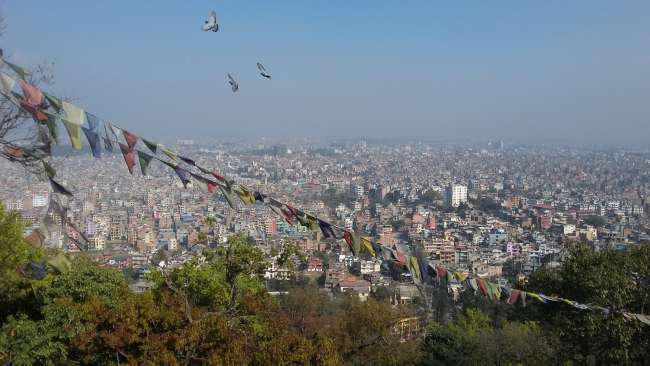
Извештаји о путовањима Непал
